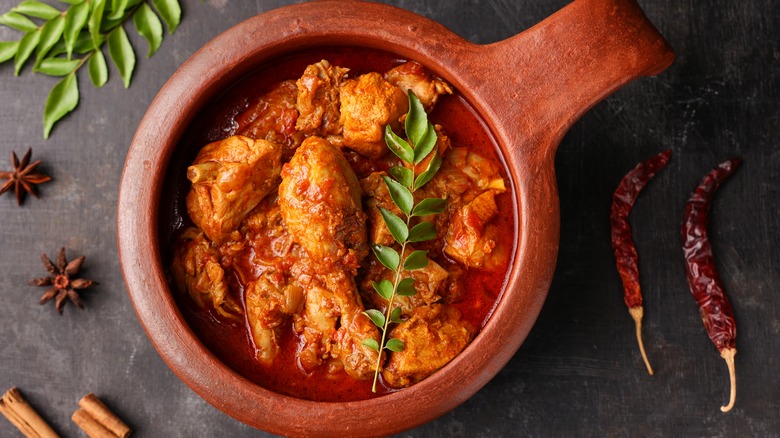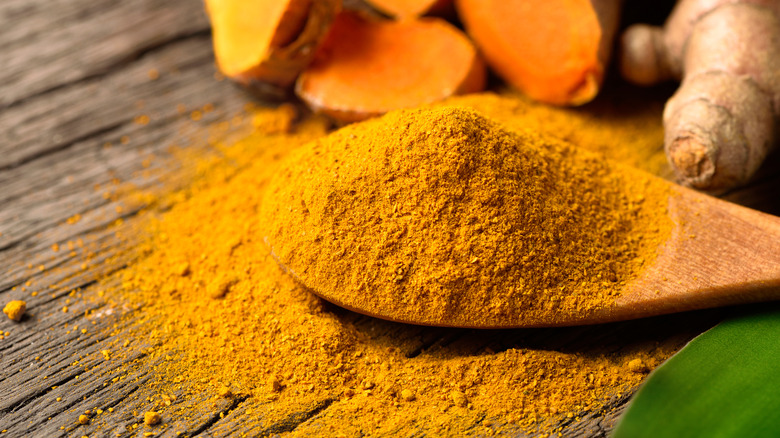The 16th Century Origins Of The Word Curry
Step aside, basil, Old Bay, and garlic salt. We're talking about curry powder, one of the essential spices commonplace to the standard home cook's cabinet. Curry powder is itself a blend of different spices; McCormick's version includes turmeric, coriander, cumin, black pepper, celery seed, nutmeg, clove, ginger, onion, red pepper, and fenugreek.
The spice was first popularized by Brits during their invasion of India. In fact, what probably comes to mind when many folks think of the word "curry" is actually a reductionist term, the product of culturally inarticulate aspiring foodies (to put it flatteringly). According to London-based food writer Sejal Sukhadwala, author of "The Philosophy of Curry," 17th-century British officers stationed at the East India Trading Company dug the local culinary stylings and began eating curry en masse (via Food & Wine). According to Yale University professor Emily Erikson, the East India Trading Company was " ... essentially the de facto emperor of large portions of India, which was one of the most productive economies in the world at that point," via History.com. The Company, incorporated on December 31, 1600, facilitated the trade of textiles, teas, and spices — one of which was curry powder.
Many different cultures have loved curry (or, versions of it)
The Brits' love for curry powder was genuine. The dish turkey curry is a British-Indian fusion, per Atlas Obscura. But, says Sukhadwala, in the British take on curry — the version that stuck — vastly varied culinary influences from regions across India were lumped together into one indiscernible catchall "curry" categorized by "ranking of spiciness" alone, says Sukhadwala (per Food & Wine). Even MasterClass calls curry powder "a product of colonization and globalization." Before that, though, curry was already a part of other countries' gastronomic repertoires.
The word "curry" took root in 16th century Portugal, states Food & Wine, derived from the etymological origin "caril" pluralized as "carie" or "curree." Sukhadwala theorizes that "curry" may also have come from the Malayalam, Kannada, and Tamil languages' word "kari," meaning "a spiced sauce."
It's theorized that the blended curry powder many home cooks know and love nowadays emerged in 1784 due to the high cost of shipping spices from Europe to North America. Today, curry dishes have also emerged in the cuisine of some Southeastern Asian countries including Thailand, Malaysia, and Indonesia, per The Spruce Eats, which frequently include ingredients like lemongrass, lime, and coconut milk.

